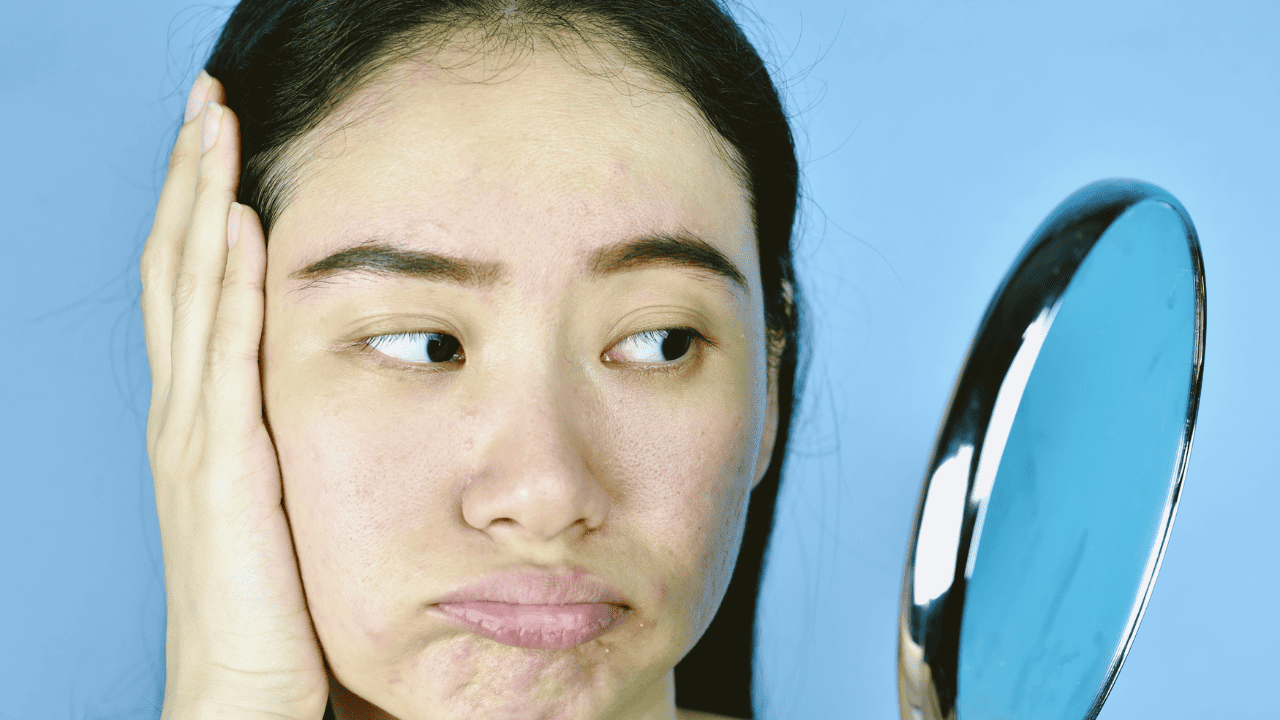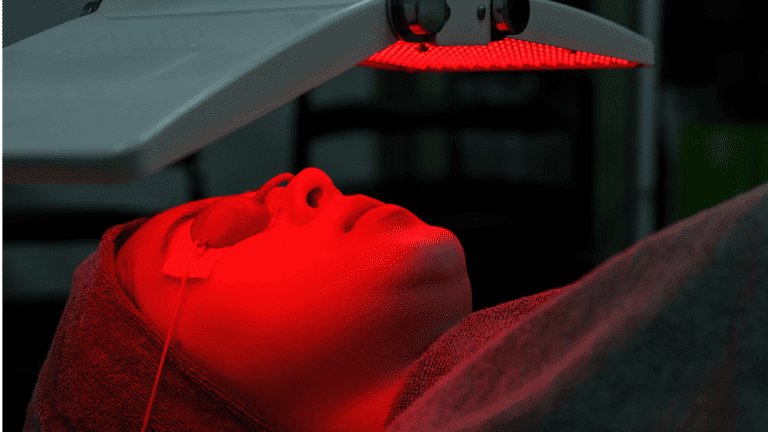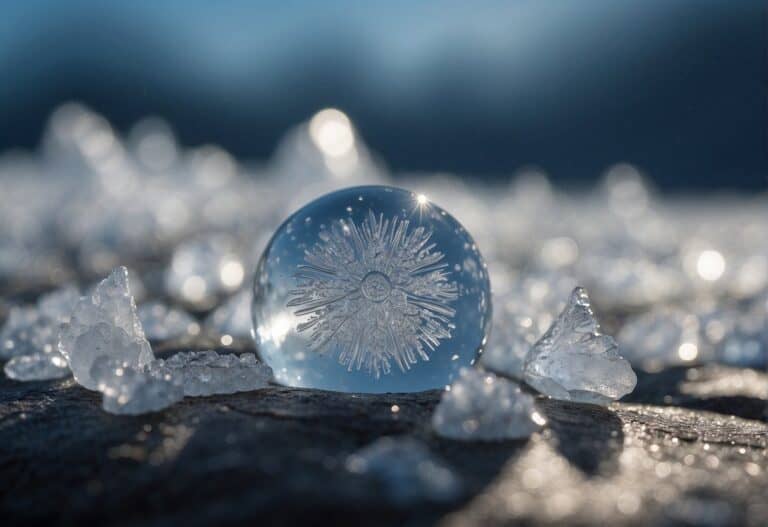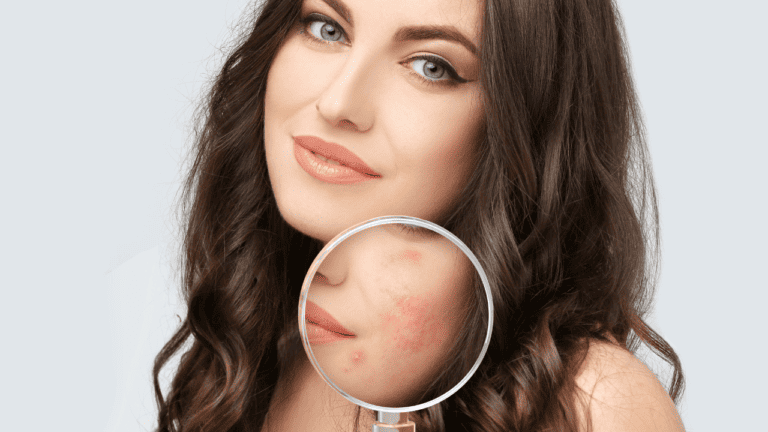Acne scars can look worse at night primarily due to artificial lighting, which is more direct and creates shadows, highlighting skin texture differences.
Additionally, increased oil production and dehydration in the skin at night can accentuate scars. Psychological factors, such as increased self-awareness and stress at the end of the day, also play a role in how we perceive the severity of these scars.
Acne scars are a challenge for many, but understanding their behavior can empower us to manage them better. Whether you’re dealing with occasional scars or more persistent marks, this guide will offer valuable information and tips to help you navigate this aspect of skincare with confidence and clarity.
Key takeaways
- Acne scars may appear more noticeable at night due to factors like artificial lighting, skin behavior changes, and psychological perceptions.
- Consistent skincare routines and using products with ingredients like retinoids and vitamin C can help minimize the appearance of acne scars.
- Professional treatments and consulting with a dermatologist are recommended for persistent or severe acne scars.
6 Reasons Why Acne Scars Look Worse At Night
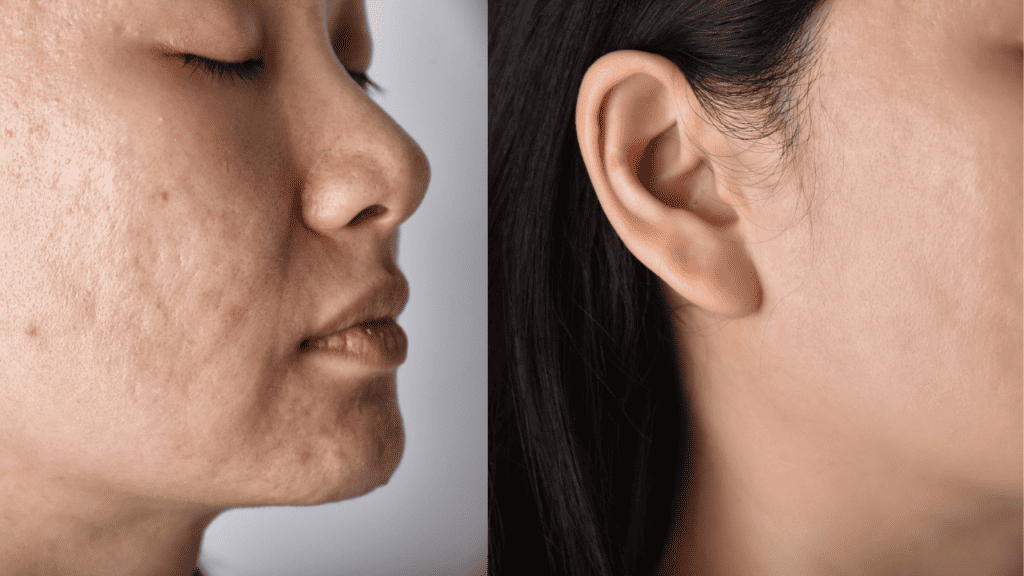
Understanding why acne scars seem more prominent at night requires delving into various factors that affect our skin’s appearance. From the nuances of lighting conditions to the intricate behaviors of our skin, this section will uncover the reasons behind this intriguing phenomenon.
1. Artificial Tends to be harsher than natural light
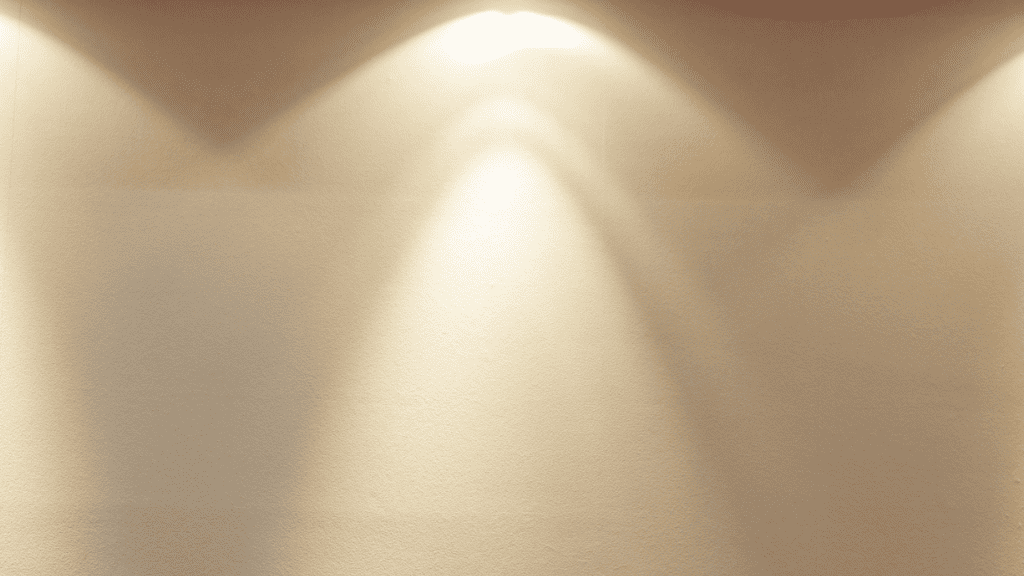
The transition from natural to artificial light plays a significant role in how we perceive acne scars. During the day, natural sunlight provides a diffused, even illumination that can soften the appearance of scars. In contrast, artificial lighting at night, especially overhead lights, tends to be harsher and more direct. This kind of lighting can create shadows and highlight uneven skin textures, making scars appear more pronounced than they do in natural daylight.
2. Shadows and Angles
At night, the angle and intensity of artificial light can cast shadows on the skin, accentuating the depth and irregularity of acne scars. These shadows can make scars look more severe than they actually are. Moreover, when we look at ourselves in mirrors at night, we often do so at close range and at angles that can exaggerate these shadows, further emphasizing the appearance of scars.
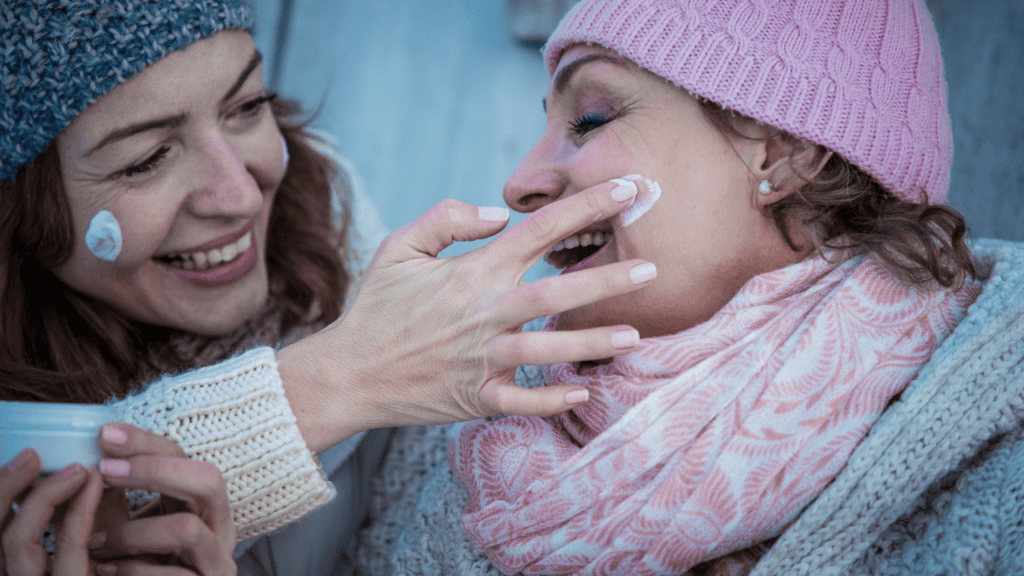
3. Oil Production Increases Or Skin Dehydration
Maintaining the balance of moisture in our skin throughout the day is not easy and this causes our scars to appear more prominent if they we do not manage it well.
Our skin’s oil production varies throughout the day. Typically, oil production increases during the night, which can make the skin appear shinier. This excess oil can highlight acne scars, making them more visible.
Additionally, if you have dry skin, and live in a dry environment, you could experience skin dehydration a process known as transepidermal water loss. This dehydration can cause the skin to tighten slightly, making scars appear more prominent.
Our skin also reacts to our environment and if you have had a full day of makeup, with comedogenic ingredients this could cause inflammation in the skin resulting in acne scars looking more prominent.
4. Reduced Blood Flow and Skin Temperature
After a long day of standing or sitting, our faces tend to be less swollen as fluid collected and resting in the face reduces over the day. With a swollen face, acne scars and their indentations are less noticeable in the morning.
Furthermore, the temperature of our environment usually cools down at night and changes in skin temperature throughout the day can affect how blood vessels dilate or contract, subtly changing the appearance of acne scars.
5. Stress and Tiredness
Our emotional and mental states can influence how we perceive our appearance. At the end of a long day, feelings of stress and fatigue can heighten our focus on perceived imperfections, including acne scars. This heightened focus can make the scars seem more noticeable than they would be if we were feeling relaxed and refreshed.
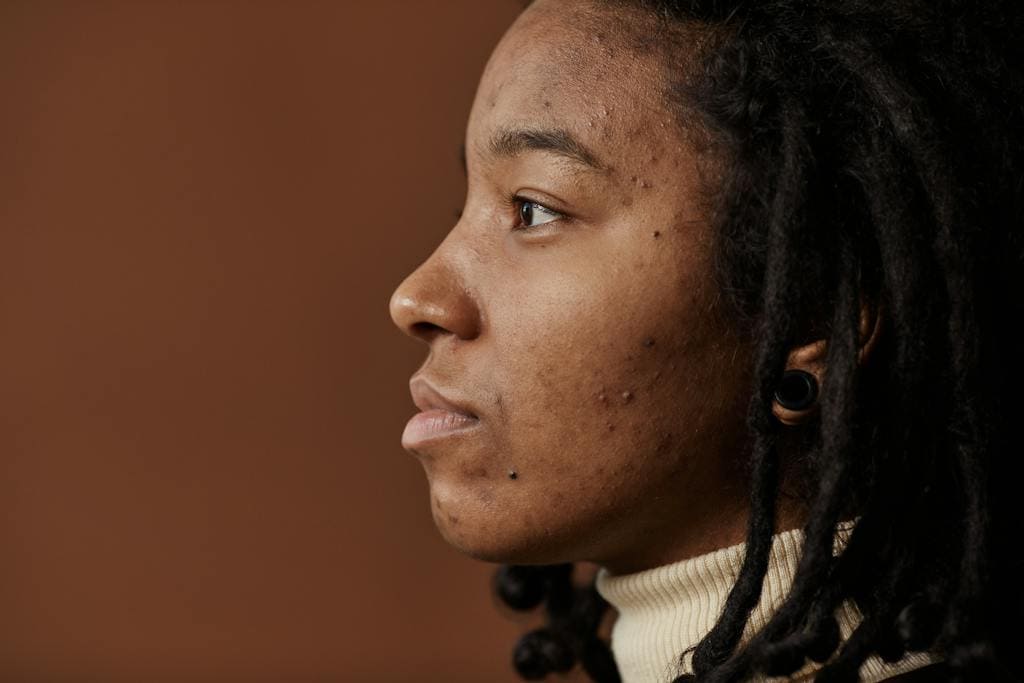
6. Perception and Self-Awareness
At night, especially before bedtime, we often engage in self-reflection, which can include scrutinizing our appearance in the mirror. This increased self-awareness, combined with the factors mentioned above, can lead us to perceive our acne scars as more severe at night than at other times of the day.
What Science Tells Us About How Acne Scars Change At night
Science tells us that the appearance of acne scars is influenced more by external and internal factors than by actual changes in the scar tissue. Lighting, skin hydration, oil production, and psychological factors contribute to the varying appearance of acne scars. Understanding these aspects can help individuals set realistic expectations and choose appropriate treatments.
How To Prevent Acne Scars From Looking Worse At night
- Maintain Skin Hydration: Use a good moisturizer to keep your skin hydrated. Well-hydrated skin can minimize the appearance of scars.
- Avoid Close Mirror Inspections: Avoid examining your skin too closely in the mirror, especially under harsh lighting, as this can exaggerate the appearance of scars.
- Use Gentle Skincare Products: Opt for non-irritating, gentle skincare products to avoid exacerbating skin sensitivity and scarring.
- Apply a Nighttime Repair Cream: Use products with ingredients like retinol or peptides that support skin repair and collagen production overnight.
- Ensure Adequate Lighting: Use soft, evenly distributed lighting in your bathroom or bedroom to avoid harsh shadows that can accentuate scars.
- Limit Environmental Stressors: Consider using an air purifier to reduce pollutants and allergens in your home that can irritate the skin.
- Stay Hydrated: Drinking plenty of water throughout the day can improve overall skin health and appearance.
Conclusion
As we conclude our exploration of why acne scars may appear more pronounced at night, it’s important to remember that our perception of these scars is influenced by a variety of factors, including lighting, skin behavior, and psychological elements. While it’s natural to be concerned about the appearance of acne scars, understanding these factors can help put your mind at ease.
Frequently Asked Questions
Can acne scars actually worsen at night?
No, acne scars don’t worsen at night. Their more pronounced appearance is due to lighting, skin hydration, and perception, not actual changes in the scar.
What are the best ingredients in skincare products for acne scars?
Ingredients like retinoids, vitamin C, and hyaluronic acid are beneficial for improving the appearance of acne scars over time.
Are professional treatments necessary for all types of acne scars?
Not all acne scars require professional treatments. Mild scars may improve with proper skincare, but severe or deep scars often benefit from professional interventions like laser therapy or microneedling.
